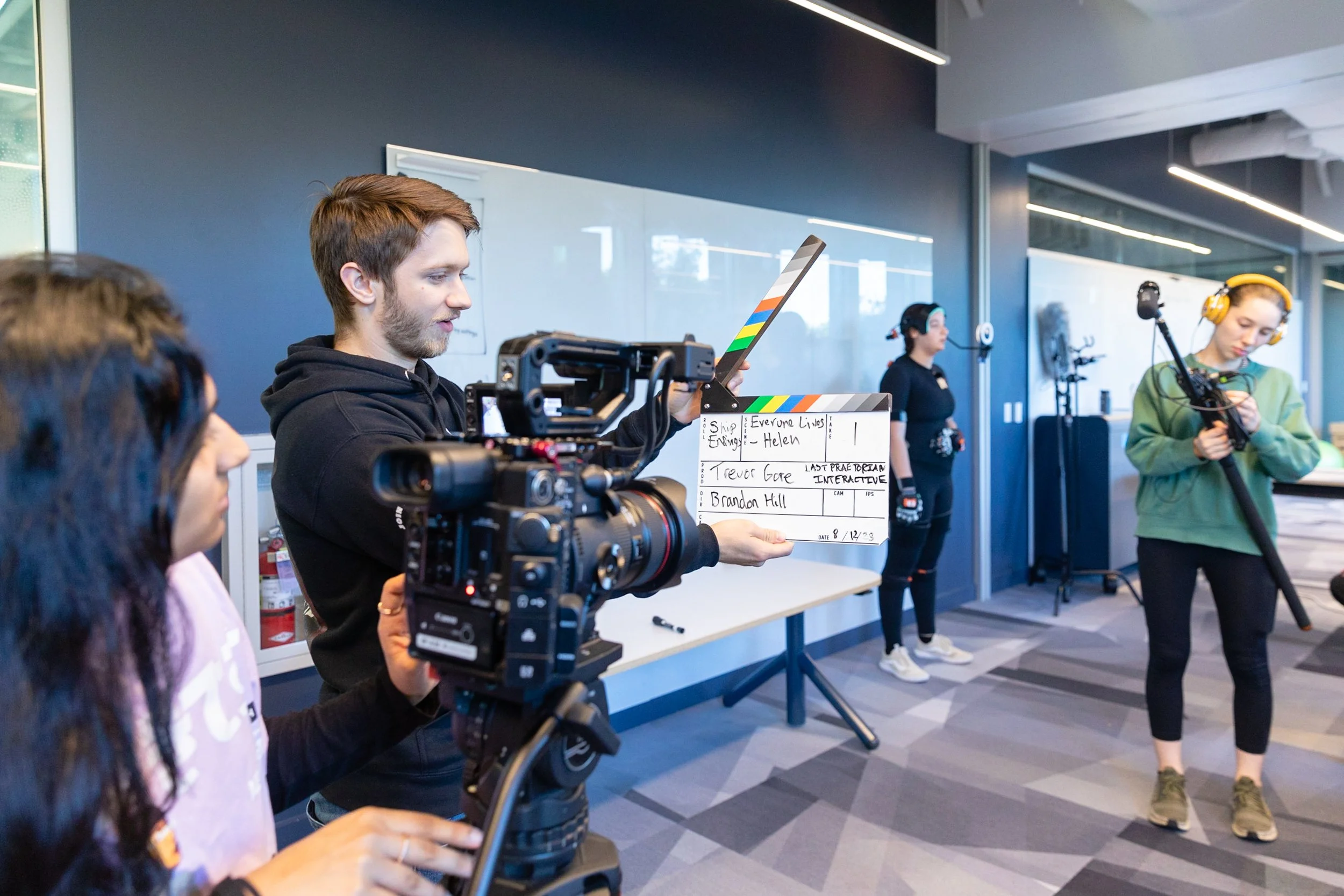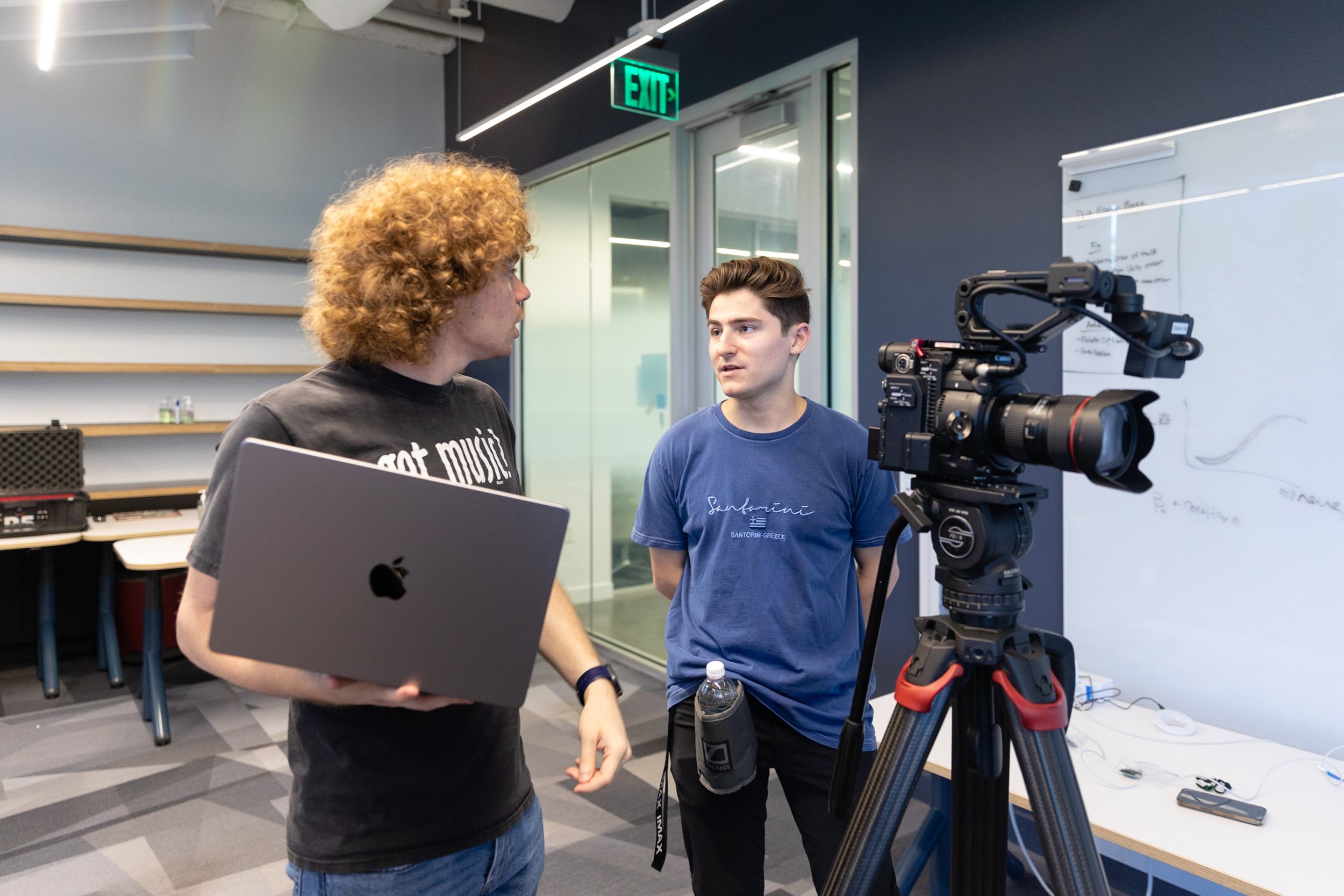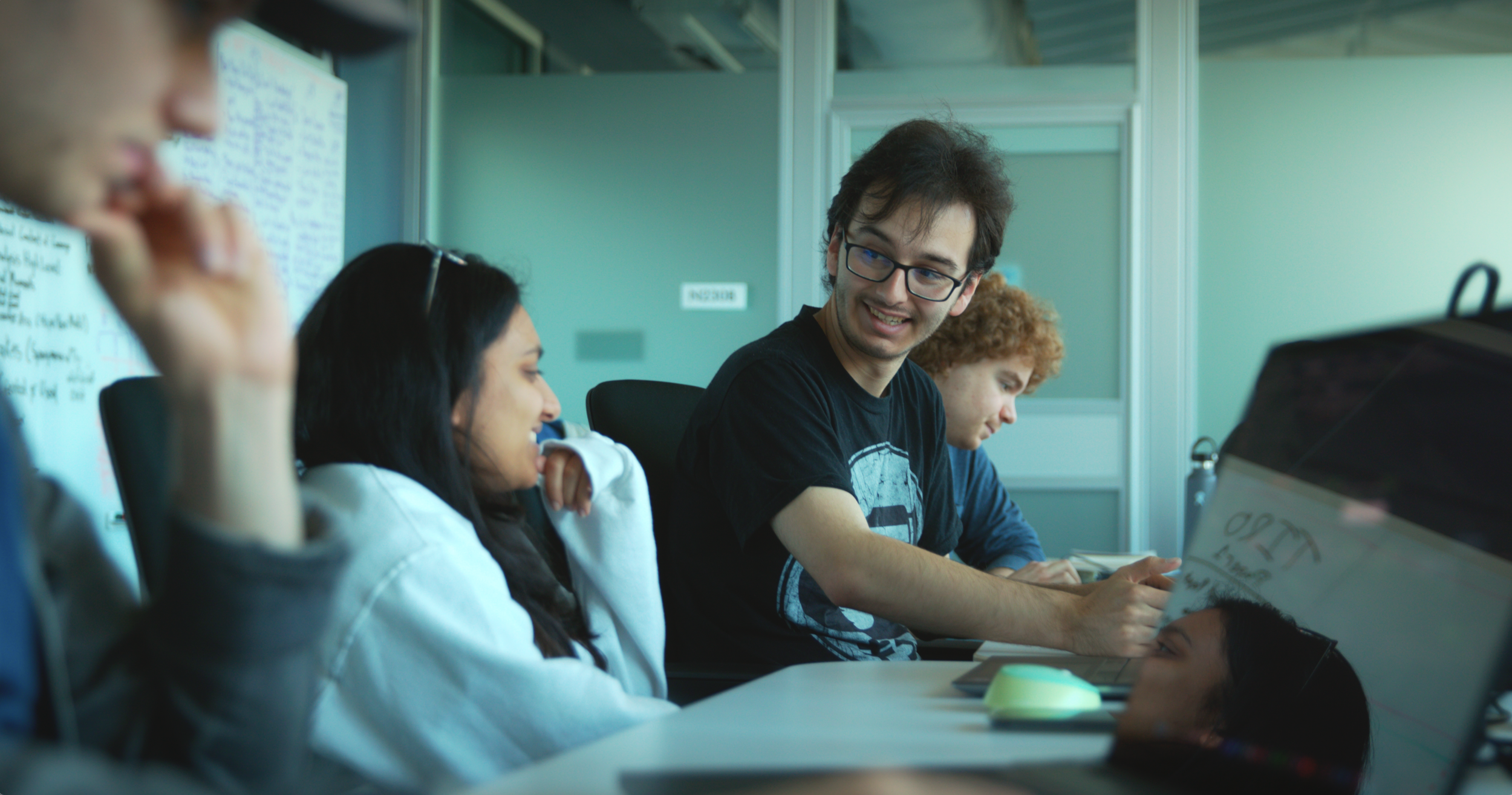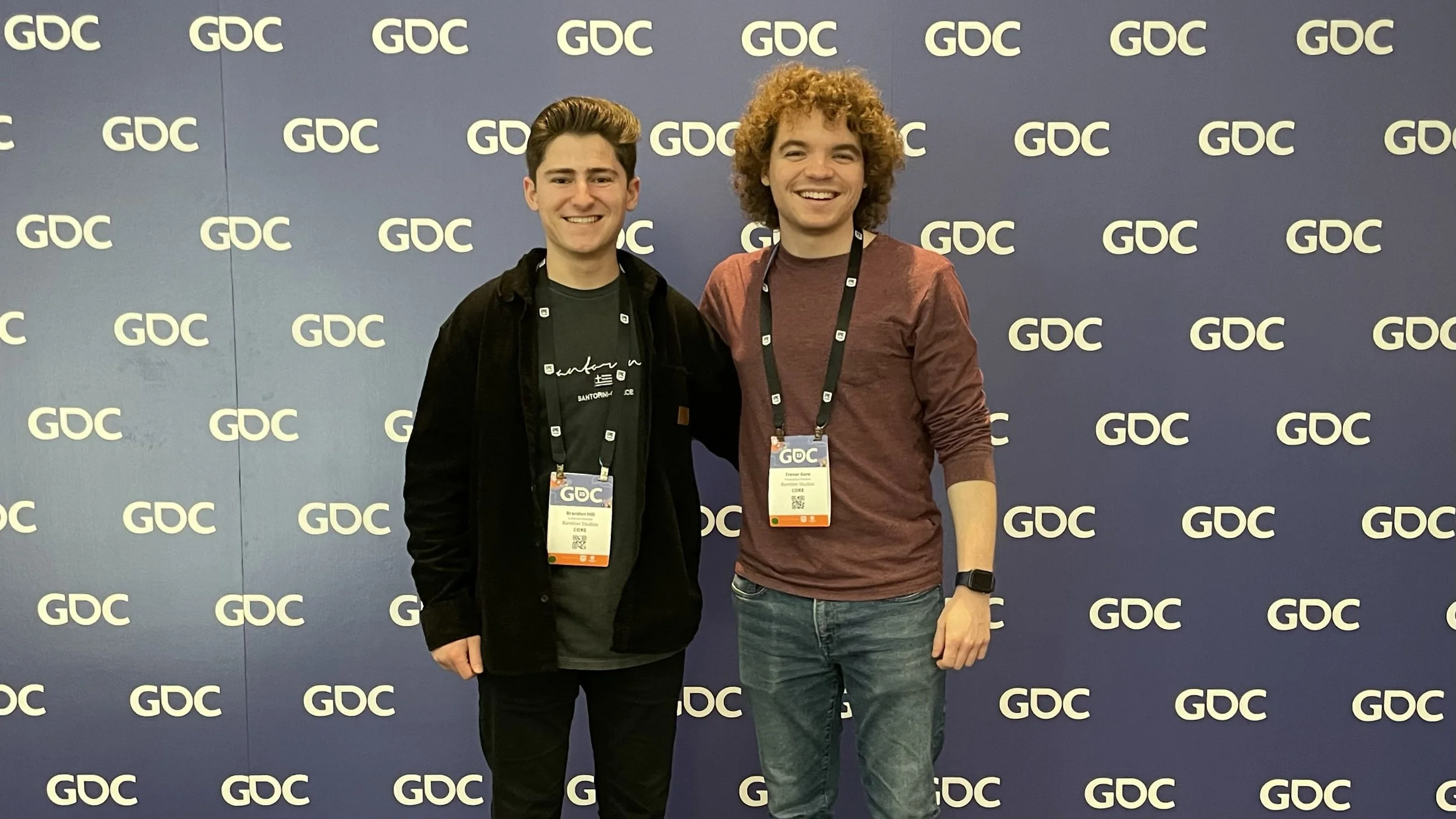‘Project Vesperi’ takes Chapman students on a one-way trip to Venus
The science fiction video game, created by Chapman students, follows a doctor investigating signs of life on the second planet from the sun. It was developed through multiple collaborative efforts, utilizing help from the Dodge College of Film and Media Arts and the Fowler School of Engineering. Photos courtesy of the “Project Vesperi” team
Dr. Evelyn Roth, the protagonist of video game “Project Vesperi,” finds contention when encountering fellow astronauts stationed on the desolate planet of Venus. Tensions are heightened on a mission to determine the fate of humanity.
Luckily for the creatives and crew behind “Project Vesperi,” collaboration and camaraderie were at the forefront of their efforts. Across two years of meticulously crafting the video game, they relied on the help of each other, their production crew and Chapman’s film and engineering schools.
The schools came in handy when, across six days in the summer of 2022, “Project Vesperi” co-developers Brandon Hill and Trevor Gore, along with their cast and crew, filmed 83 pages of motion capture for the video game. After filming was completed, Gore and Hill, both game development programming minors, used the initial steps of “Project Vesperi’s” development to satisfy their theses for the minor.
“Before we walked into a room and tried to get people to come on board, they were gonna look at me like (Gore) did and go, ‘What the hell are you talking about? There’s no way you’re gonna have 83 pages of motion capture. Where are you gonna do that? How are you gonna do that? So, it was important to us that before we walked into the classroom, we were gonna have that done, out of the way. We had answers, not questions.”
To Gore, a first year graduate business administration major, the project has come far since he first heard the pitch.
“It’s grown from being an initial concept that just (Hill) and I were working on to being a student project and a passion project and something that’s very near and dear to everybody that’s been able to join on,” Gore told The Panther.
On April 5, The Panther sat down with Hill, a senior film production major, and Gore to discuss the timeline of the video game’s development and what went into making Hill’s initial idea a reality.
“Project Vesperi” is a single-player, story-focused and branching narrative game, meaning that the choices a player makes will impact the story. The game follows Dr. Roth investigating the planet Venus in the near future. Unlike other colonies and areas of life in the universe, Venus is desolate, with only a few humans stationed on the planet. When Roth arrives on Venus to investigate a sign of life, she contends with other characters on Venus’ station, one of which is an intruder.
“Project Vesperi” has been in development for the past two years and features motion capture animation.
Hill always had an interest in creating a science fiction project. While passionate about films like “Arrival” and “Interstellar,” he believed that, with his level of resources, the creation of projects to that scale would be difficult. With his knowledge of Unreal Engine and a skeletal idea, Hill approached Gore, who was initially dubious about the project.
Hill won over Gore when he showed Gore a concept teaser he had created using the Metahumans software. Gore became the project’s writer and production lead. Hill served as the game’s creative director in addition to working as a cinematic designer and animator.
Gore wrote the game’s script, and both creatives collaborated extensively on the project’s narrative. In the Swenson Family Hall of Engineering’s student research pods, Gore and Hill would brainstorm the game’s script on whiteboards, structuring the narrative and working through iterations of its story. Their work resulted in the aforementioned script.
“That’s sort of the fun about (“Project Vesperi”),” Gore told The Panther. “It’s like watching a film, but you get to decide what happens.”
Unlike the shoot of a film, filming motion capture for the game’s characters was actually pre-production. The team utilized the help of a motion capture suit and the research pods provided by the Dodge College of Film and Media Arts and the Fowler School of Engineering, respectively.
“There was no way that this was gonna be possible without a collaboration between both Fowler and Dodge,” Gore said. “Both of them were instrumental.”
Pre-production was both easier and more difficult than a typical film production. While Hill was able to focus on a single actor’s performance at a time, there were no physical set dressings, requiring the crew to utilize regular objects to stand in for props and backdrops later created by the game’s animation.
“The key to it, for me, was that we were always doing it in a way that we’re trying to keep it grounded. We weren’t being like, ‘Okay, you’re flying through space.’ It’s like, ‘No, you’re walking around in a room similar to this, but just imagine that Venus is out that window instead of Orange.’”
He continued: “That was sort of the fun part, is that we’re still trying to tell a very human story… feeling the weight in them stepping and grabbing things was key. That was all due to their imagination and whatever we could help to get them there.”
After pre-production wrapped, the project underwent agile development, a process where tasks are completed in two-to-three week sprints. Afterward, the team has since been working to perfect different facets of the game. While a vertical slice — a playable version of the project — has been completed, the entire “Project Vesperi” team has continued to fine-tune the game in their free time.
Currently, the core development team consists of the following members:
systems programmer Sean Robbins, a class of 2021 computer science alumnus
UI/UX programmer Meghna Raswan, a class of 2023 computer science alumnus
gameplay programmer Nathan Cuadros, a class of 2023 data analytics & economics alumnus
lead environment artist Isa Lee, a senior computer science and animation and visual effects double major.
Hill and Gore plan to release the game later this year for free to illustrate how the game is both a labor of love and how it is a testament to the work students can do with their resources.
“Everyone sees the vision of what this could be, so I think we’re all just excited to keep working on it,” Hill said.
Students can wishlist the game on Steam and Epic Games. To learn more about the project, visit the game’s website here and their Instagram page here.





